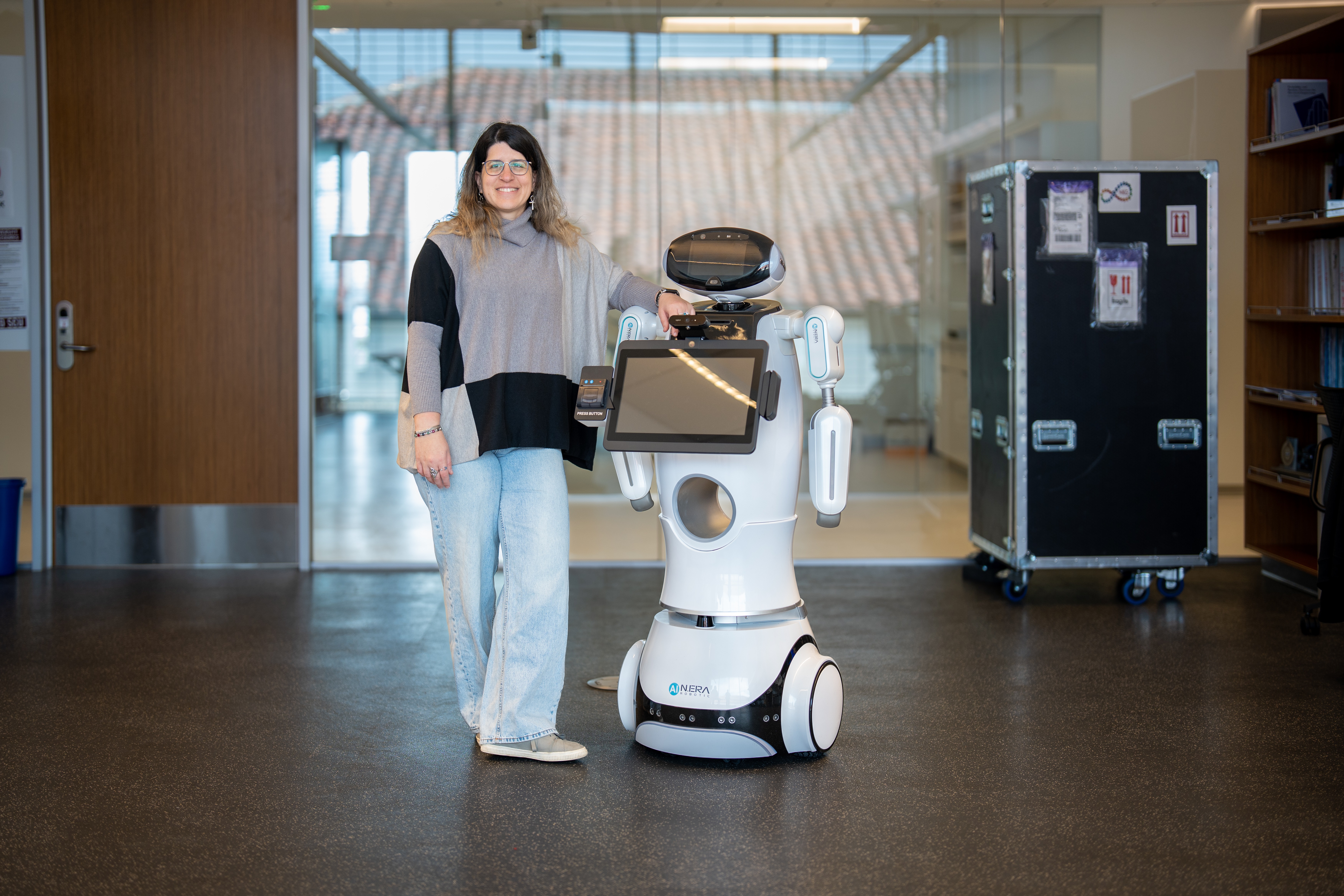
Faculty Spotlight: Maria Kyrarini
What brought you to Santa Clara University?
Before coming to SCU I was a postdoctoral researcher at the University of Texas at Darlington, and before that, I did my Ph.D. at the University of Bremen in Germany. I chose to come to Santa Clara because everywhere else I interviewed, I saw few females, but there was so much diversity at the School of Engineering and in the Department of Electrical and Computer Engineering.
What are you currently working on that excites you?
One of the projects we are working on is to make a personalized assistive robot that could help people with paralysis. Our goal is for the robot to recognize when a person is tired, and they could take over some of their tasks. For example, we are working on one scenario that involves collaborative cooking. In this scenario, the robot is responsible for fetching items while the person is cooking. So, for example, if the person gets tired and starts to forget what they need, the robot can give reminders. Or if you’re making pasta with sauce and start with cutting peppers, but you do need to start with garlic, the robot will remind you to use garlic first. We want the robot to learn the user's preference and not just take a random recipe from the internet. We received funding from the National Science Foundation and are very excited about it.
How did you get into robotics?
I wanted to get more into control and found an opportunity to get my master's in Automation and Systems in Greece. I then went to an exchange program in Germany. During my master's thesis, I worked in a massive EU plant where they built a new rehabilitation robot, and I was working in control, and that's where I realized this is what I want to do for the rest of my life. After that, I received an offer to do a Ph.D. in robotics. But if you were asking me probably ten years ago, what I would do, I would never have said robotics.
What are some exciting things happening in the field of robotics?
Because I'm focused more on assistive robots and how we can help people with disabilities, I feel that this is one of the areas where we'll need the most because of how the population is getting older. As we age, we need more help because, often, help is unavailable, so robots can at least help with some of the tasks. If you check statistics, for example, there is a nurse shortage in the US; that's where robots can come into play. Although robots can never replace nurses, they can be assistive. People will always need the help of other humans, but robots can do small things to make their lives easier. For example, a Rumba can only clean so much until the individual needs to step in and clean the rest.
Do you have any concerns for the future of robotics?
Everything I hear is about robots taking over jobs. They would take some of the low-income jobs but could bring more jobs because someone needs to maintain, control, and program the robots. This will ultimately bring in new job opportunities.
What does the future of robotics look like?
I built a collaboration with the Vista Center for the Blind and Visually Impaired here in San Jose. We are looking at ways in which technology could help, including robots. It is a preliminary idea at the moment, but we hope to get some preliminary results and the funding to work in that area. The collaboration is with John Giddings from the Engineering Management and Leadership department.
For those looking to get into robotics, where should they start?
Robotics is an interdisciplinary field, and I recommend exploring a bachelor's degree in electrical and computer engineering, computer science and engineering, or mechanical engineering. If you're building robots, you need to know the mechanical and electrical aspects, so it's a good idea to pick any of the three bachelor's degrees you like the most. But I would recommend a master's in robotics and automation, which Santa Clara University happens to offer!